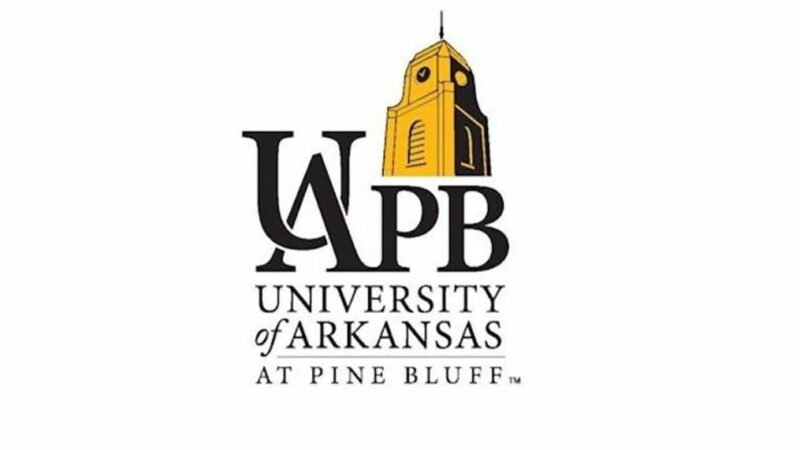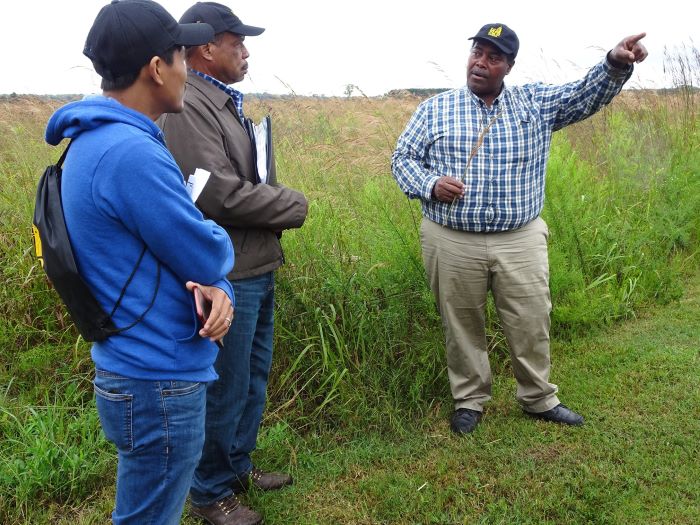
Pine Bluff, AR — Julius Handcock grew up on a family farm with his parents and seven siblings in St. Francis County in Arkansas where they grew vegetables and field crops and raised livestock. Now he manages 923 acres for the University of Arkansas at Pine Bluff’s School of Agriculture, Fisheries and Human Sciences.
Since 1999, Handcock has been the resident director of the 871-acre Pearlie S. Reed-Robert L. Cole Small Farm Outreach Wetlands and Water Management Center (SFO-WWMC) in Lonoke, Arkansas. He lives on the property and oversees its operation.
“Living at the Center allows me to closely monitor activities, appreciate the land and wildlife, and have no travel time to work,” Handcock said. “I get to assist researchers and growers with a variety of agriculture-related projects on a daily basis.”
The SFO-WWMC was created to address critical groundwater issues facing Arkansas and the economic plight of small-scale, limited resource farmers. Research and demonstration projects are conducted by a multi-agency group of scientists, engineers, professors and community organizations.
“In Lonoke, we conduct demonstrations in water management,” he said. “The crops are irrigated by different methods to show farmers and gardeners how to effectively use irrigation.”
The demonstrations include rice, soybeans, sweet potatoes, cowpeas, watermelons, greens and muscadines. The site has two greenhouses and one high tunnel.
Handcock is also responsible for the day-to-day operations at the 52-acre Agriculture Demonstration and Outreach Center in Marianna, Arkansas. Fruit and vegetable demonstrations are conducted there in field settings and in three high tunnels.
“Both locations serve as research, Extension and training centers. Field days and training are provided on both sites for the community, 4-H youth, farmers, staff and students,” he said. “I help design projects with researchers and outreach partners in Arkansas and beyond. I assist community leaders with efforts such as composting and community gardens. I also assist UAPB faculty and students with research projects.”
The Lonoke site has 35 acres of forestland. There is a 103-acre native grass project, a 50-acre storage water and tailwater system, and 300 acres of precision leveled land, he said. Three irrigation wells and three water control structures have been installed on the site.
Handcock has a bachelor’s degree in agronomy from the University of Arkansas at Pine Bluff and a master’s degree in Extension education from the University of Arkansas, Fayetteville.
“My love of farming led me to pursue an education in agriculture and eventually work in this profession. I wanted to share my agriculture experiences and knowledge with the state of Arkansas,” he said. “The UAPB outreach centers are located in areas that are accessible to the public. My work gives me the opportunity to give back to the community.”
Prior to working full-time at UAPB, Handcock served as a student worker in poultry science for three and a half years. He then joined the agriculture staff as a research assistant in 1983.
“I first worked with Dr. O.A. Porter, a professor of agronomy, for 12 years beginning as a research assistant,” he said, adding that he later became a research associate. “I conducted research on field crops such as soybeans, sunflowers, rice, sweet corn, cow peas, watermelons, greens and cover crops. I also performed laboratory analysis on soils, leaf tissues and sunflower oil extractions.”
Handcock wore many hats for UAPB prior to becoming resident director. From 1990-1997, he was a recruiter for UAPB’s School of Agriculture, Fisheries and Human Sciences. He served as a special instructor in regulatory science and as acting farm manager in Pine Bluff and at the Lonoke site from 1995-1996. He was a UAPB special instructor in regulatory science and farm manager at the Lonoke site from 1997-1999. He continued teaching until 2017. His time as resident director has spanned 25 years.
“The favorite thing about my job is I enjoy working outside and helping farmers develop their crops,” he said. “In the future, I would like to work more with community youth projects. I want to help inspire the next generation of farmers.”








